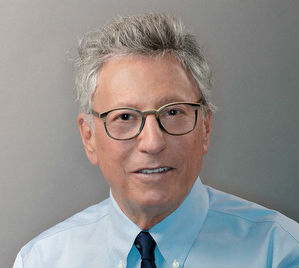
These are days when you have to admit it feels good to be Canadian.
I don’t say this to boast – we’ve only recently emerged from our own challenging period of government. But having experienced that, and now watching what the United States is going through under the leadership of Donald Trump, the return to more progressive immigration policies north of the border comes as nothing if not welcome relief.
Since coming to power in October 2015, Canada’s Liberal government has repealed some of the previous government’s more troubling legislation, such as conditional permanent residence, the removal of health care for refugees, and the right to strip Canadian citizenship from dual nationals. “A Canadian is a Canadian is a Canadian,” now Prime Minister Justin Trudeau stated during the election campaign that year. “As soon as you make citizenship for some Canadians conditional on good behavior, you devalue citizenship for everyone,” he said.
Now, a little more than two years and a Trump victory later, Canada is reaping the rewards of its return to a more generous, welcoming approach to the world. With a new year ahead of us, it’s worth reminding ourselves of the ways in which Canadian immigration policy has evolved, and where we can still do better.
While repealing the more punitive policies of its predecessors, the Trudeau government has introduced welcome innovations like the Global Talent Stream and reformed Express Entry’s Comprehensive Ranking System in favour of skills over job offers. Immigration, Refugees and Citizenship Canada (IRCC), the federal immigration ministry, has also made family reunification a priority and established new, three-year immigration levels that aim to welcome nearly one million newcomers to Canada by 2020. With isolationism and nativism on the rise in countries like the United States and Britain, these policies are helping turn Canada into a destination of choice for skilled immigrants in search of new opportunities.
This is not to say the Trudeau government has been perfect and everyone is happy. The arrival of thousands of asylum seekers from the United States last summer caught the federal government off-guard and overwhelmed its capacity for processing claims in a timely manner. As I wrote last year, the government’s lacklustre management of the situation put nothing less than the integrity of Canada’s immigration system at risk. The federal government’s Safe Third Country Agreement with the United States, which holds that both countries are safe for refugees, is now being challenged in a federal court. Groups like Amnesty International and the Canadian Council for Refugees argue the United States is no longer a safe country for refugees, which the Canadian government continues to refute despite mounting evidence to the contrary.
Another notable glitch was changes introduced to Immigration, Refugee and Citizenship Canada’s Parents and Grandparents Program. The Liberal’s went to a randomized selection process and introduced an online Interest to Sponsor form that all would-be sponsors had to first complete. A good idea in theory, yes, but the form’s lack of detail led thousands of ineligible sponsors to apply, wasting both their time and that of IRCC staff. To its credit, IRCC has corrected this oversight on the latest version of the Interest to Sponsor form, which went live January 2. However, as reported by CBC and others, the randomized selection process remains deeply unpopular with those who have been waiting patiently in line for years to sponsor their parents or grandparents to Canada.
Looking ahead at 2018, the challenges and opportunities for Canada’s immigration system will be great. Uncertainty in the United States may continue to drive asylum seekers north, further testing both Canada’s immigration system and the public’s confidence in it as the world looks on. At the same time, the federal government’s three-year immigration levels plan kicks into gear, with its stated aim of “increased economic competitiveness through the attraction of global talent.” This is expected translate into Canada welcoming more than 177,000 newcomers through Canada’s economic immigration programs alone. Add the targets for Family Class programs, refugees and protected persons, and humanitarian programs and we’re looking at a total admission target of 310,000 souls in 2018.
If 2017 was a pivotal year for Canadian immigration, 2018 could see it beginning to hit a new, confident stride. All in all, it should be a fascinating year — and one that we can hopefully all be proud of as Canadians.